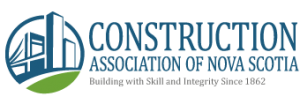Is your company proactively addressing COVID-19 concerns?
An ounce of prevention saves a stitch in time.
The spread of novel coronavirus (COVID-19) is impacting operations around the globe. In events such as this outbreak, we must be proactive, monitor the situation and plan accordingly. Preparation and common sense — not panic, is always the best response to deal with global health concerns.
Have you developed a plan to deal with COVID-19?
- Stay healthy: practice good hygiene!
-
- The first line of defence against airborne infection is properly washing your hands.
- Sneeze or cough into your arm or sleeve.
- For the time being, consider a wave in place of a handshake, or hug.
- Provide hand sanitizer to employees when possible and ensure that workplace bathrooms are properly stocked with soap and paper towel.
- Understand what you’re dealing with.
- Avoid the spread of misinformation, visit the Public Health Agency of Canada for the most up-to-date information about the outbreak’s impact in Canada.
- Know the facts about coronavirus, find out more about how coronavirus is spread and its symptoms.
- Reduce your exposure.
- All non-essential business travel should be suspended until further notice. Click here for the latest travel advice from the Government of Canada.
- Have you recently returned from an international trip? Check out the Public Health Agency of Canada’s info sheet for travellers returning to Canada.
- All non-essential business travel should be suspended until further notice. Click here for the latest travel advice from the Government of Canada.
- Prepare for possible office closures and shutdowns.
- Take some time to consider how you will accommodate for possible shut-downs at your place of work.
- If working remotely is an option, ensure all work and information that can be shared on a cloud-based or remote-access system is uploaded in advance.
- Prepare to use virtual meeting software and technology (Microsoft Teams, Slack, Skype) when and where possible.
- Immediately conduct a supply chain audit.
- Supply chain problems are likely to increase with spread and duration of the outbreak. Not only are materials becoming scarce as manufacturing in China and elsewhere are impacted, but they may become more expensive. Plan for possible price increases on supplies.
- Communicate plans with your employees.
- Outbreaks like COVID-19 can increase stress and uncertainty among your workforce. Let your employees know what to expect in the event of a voluntary or mandatory job shut down. The best way to avoid panic is to arm your workforce with information on how you will address the issue.
We’re monitoring the situation closely and will continue to share information when it’s available. For the most up-to-date information on the outbreak, visit the Public Health Agency of Canada.
Government Resources
Additional Resources
Read about the impact of COVID-19 on insurance, from Crawford.
Watch “Coronavirus and supply chain implications in construction,” a webinar from the Canadian Construction Association.
Check out Aon’s COVID-19 Response Site, established to support organizations in mounting effective infectious disease (pandemic) response, and in planning for impacts that may confront businesses, their employees, and the communities in which businesses operate and employees reside
In The News
“Coronavirus could have multiple impacts on construction” – read more from Construction Connect.
Feeling under the weather? “How to self-isolate during the coronavirus crisis” – CBC News explains when and how to self-isolate.
A very useful Harvard Business Review article, “Lead Your Business Through the Coronavirus Crisis“.

